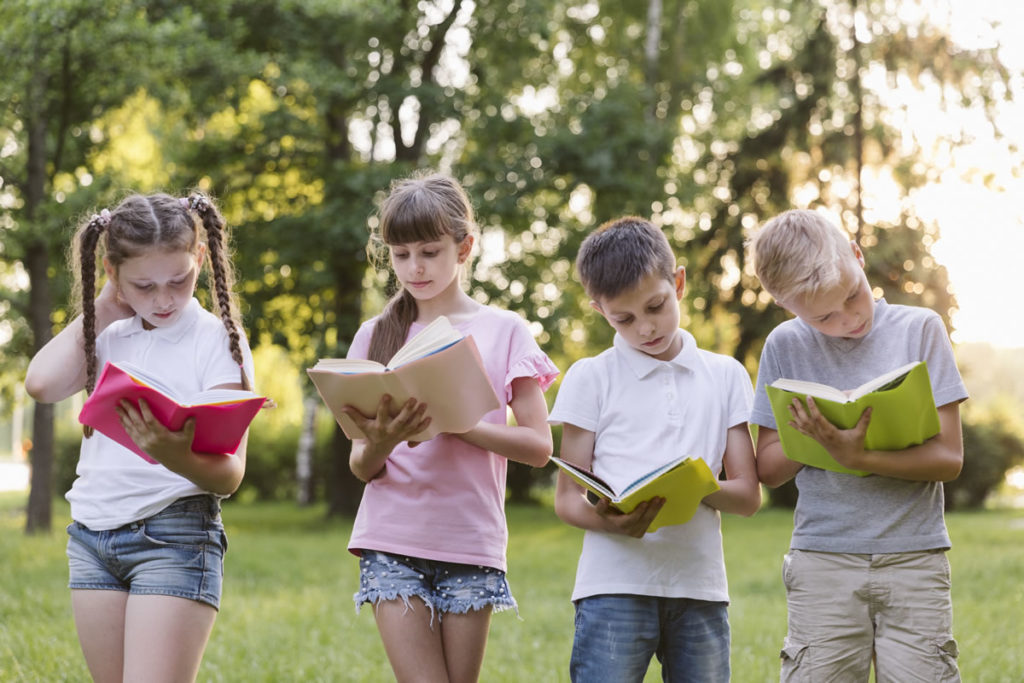The first years of study in primary school are mainly devoted to essential tasks, such as teaching children to learn to read , but from the fourth grade on, teachers’ attention is also focused on how to understand the language. reading done by each student, as it is of vital importance.
At the same time, and for children to have the need to face increasingly important challenges, the types of readings and texts that students face, as the year progresses, are also more complex and related, generally , with all the subjects that are already being studied, such as science, history, geography or other topics.
However, understanding what is read is a much more difficult task than learning to read, and many children face serious difficulties in doing so. That is why it is very important to have certain guidelines that help the little ones to acquire this very important skill with the least possible effort.
Guidelines to help children understand what they read
In order to make that process of teaching reading comprehension a little easier, we have compiled a series of tips that can help.
Don’t miss them!
- Encourage more conversations with your children
It is important that you increase the daily conversations with your children regarding everyday topics , no matter what you talk about , the important thing is to do it and do it together. In this way, the little ones will be able to relate what they read in books with what they learn by listening, as can happen with topics such as births or life and death, which are always complex. But it does not have to be a theme that is found in books, it also looks for a fun narrative activity, or a story that grandparents lived, or how was the childhood of a recognized musician, or perhaps episodes in the history of your city … etc. It is important to learn from books, but even more important is to learn to understand things from teaching and family experiences and, after all, the things we read always convey an interesting story to us.
- Develop your critical thinking with questions
Questions are magic doors into an unknown world, and while children fantasize looking for an answer, they will in turn question everything they do not understand. This is one way to help children develop critical thinking… don’t stop asking them questions and challenging them!
- Help them understand the context of unfamiliar words
Before looking up an unknown word in the dictionary, ask the child to understand the context of the sentence he / she is reading, to provide a meaning according to the word and that he / she can end up making the relationship himself / herself. This way you can understand the sentence more easily, without stopping . Next, let him check his guess in a children’s dictionary.

- Watch movies based on real life together
There are films that are very educational, but whose most important information can be lost if the child in question does not have at that moment who to ask their questions immediately . For example, movies about earthquakes, tsunamis …, movies that show the history of a disease, the experience of a death, etc., are movies that always generate many doubts and concerns in the little ones, so make sure they are educational , that your children always have a suitable age to see them, and to be there to accompany them in the experience and in solving any doubt that may arise.
Do not stop watching the movie with them, because in addition to being important for their learning, they are moments that they do not relate to education and that are fun. These are moments that are worth enjoying, especially knowing that they will also be learning a lot.
- Stroll together and visit historical places
It does not matter where you live, because in your locality there must be paths and routes through historical ancestors , also museums, schools or churches with a lot of history that are worth discovering. Also take advantage of the vacation periods to choose places that combine fun with history or geography . Teach children about aquatic life by diving or the importance of knowing survival tips on an outing. The variety of interesting activities to do is almost infinite, and these experiences will also make it easier to understand the readings, which is the fundamental objective.
Follow these simple tricks and you will see how your child will better understand everything he reads!












































































































Very important the content and the proposal